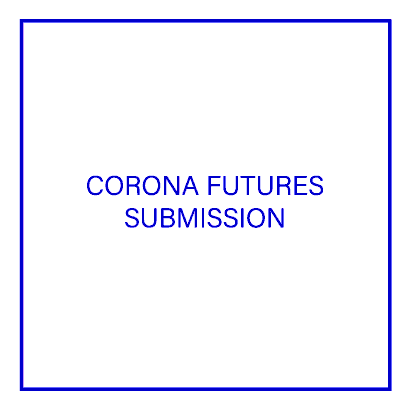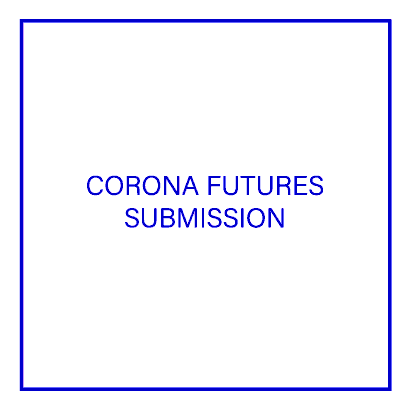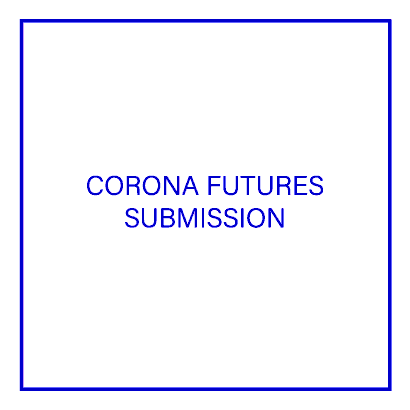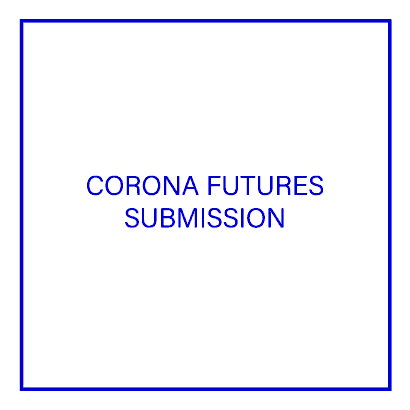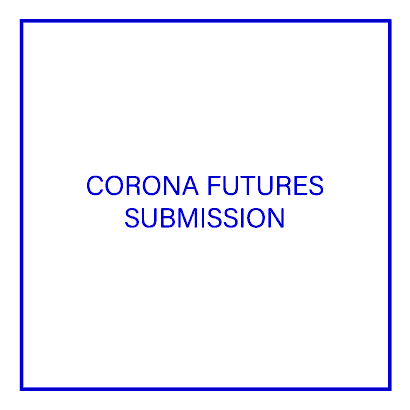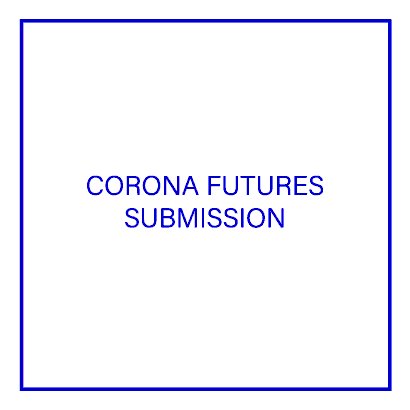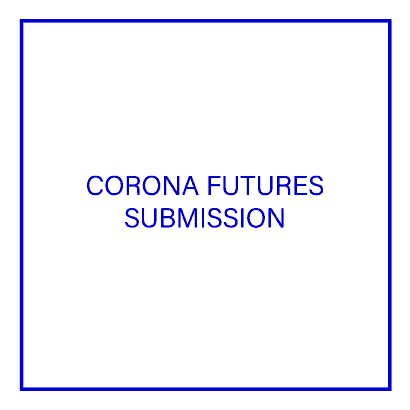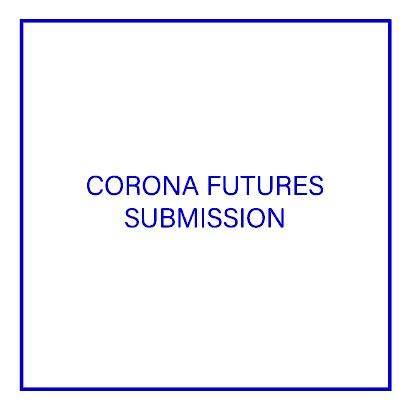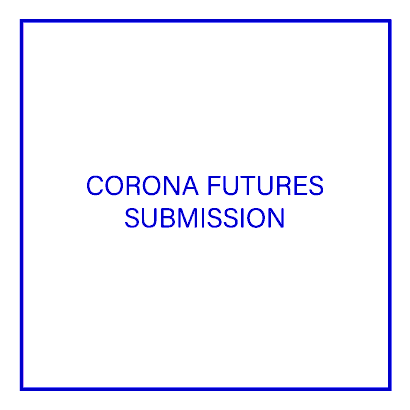Our relationship with food and beyond can be part of the solution, as we are feeding not only us as human beings, but trillions of microbes, that have specific needs we should take into account while choosing which food to eat. At the moment, due to the corona crisis, people maybe have more time to celebrate their daily meals and food is one of the last things available for us, at least in a rich country like Germany. This has the potential for our society to rethink our relationship with food and its importance for a good living, picturing a point of departure for a social-ecological transformation. For post-corona times food can be a lever to fulfill the desire for conviviality. Following this and reflecting the outcomes of a workshop at the Beyond Crisis Conference, we seek to explore the potential of commoning projects like community ovens.
Long before the COVID-19 pandemic, our vivid everyday experiences and situated knowledges made us aware of the horrible failings of our current system of capital accumulation and neoliberal individualization. Now, as the pandemic ripped the glossy facial mask down from the face of our neoliberally organized societies with a virulent grin, these failings lay bare before our very eyes (the eye understood here as an interface between body and mind). Needless to say that our feeling of an urgent need to transform this failing neoliberal being-individually-outside-of-a-multispecies-world to a just and convivial being-together-in-a-multispecies-world currently seeks ways to burst out. Ironically, a virus, that our neoliberal societies interconnected through globalized capitalism helped to create, complicates a being-together-in-a-multispecies-world as of now.
This crisis nevertheless points towards a beyond, a speculative future, that will arise from our decisions we take now and from which new possibilites of being-in-the-world are going to emerge. We are right there, on the dancefloor, the space in-between past and future worlds. The way we dance will decide about the world we enter when departing from the dancefloor.
When the invitation came to play our first live concert at the Beyond Crisis Conference organized by the Free University of Bozen-Bolzano we did not hesitate to take this wonderful opportunity. Beyond Crisis. The beyond is our dancefloor. What a match! Still, we also wanted to participate in the sessions and workshops of the conference, so we recorded our concert beforehand and took part.
We first identified three readings of the concept of “commoning”: sufficiency, common land and data/common knowledge. Focusing primarily on the sufficiency-reading and the sense of community that this implicates, we characterised commoning as a need-oriented, communal living together of humans and non-humans based upon sharing and trusting relationships, no matter if it’s about land, food, knowledge, health or other needs and resources. By not only sticking to human-human relations we quickly came to the point that “commoning” is actually a concept extracted from nature. It is important to keep this in mind and learn from the commoning practices of plants, animals and microbes as they themselves have commoning systems in place ensuring their survival. The biological understanding of diversity is key to this, as most ecosystems and their constituents rely on diversity in order to be resilient to phases of shortcomings, crises and catastrophes. We can observe that monocultural systems, let it be agricultural production or capital accumulation interweaving each other, are extremely vulnerable to crises as we can see in the increasing dependence on pesticides, insecticides, genetic modifications etc. in agriculture, as well as currently in the austerity-plagued health systems and non-existing economic safety nets of capitalist societies.
Diversity helps to reduce vulnerability and build up resilience. If one of many components is experiencing a crisis, others will step in and help out. An unconditional basic income would have helped to buffer the current economical crisis, as well as an alternative money system set up regionally to support local businesses. These are examples that already show on which scales resilient commoning systems can be established, mainly locally or regionally. While diversity helps building up resilience, it also needs to be a principle in re-organizing our power structures. A sole focus on building resilience obscures the power relations in which we are enmeshed. Therefore, we need to scale up the commoning concept in order to reduce the power of the financial sector, the agribusiness and the food industry.
If we want to scale up the commoning concept, we have to acknowledge its decentralised nature, promoting the diversity of many local projects and initiatives, e.g. urban gardening or farming projects working with permaculture, towns using alternative money systems (see “Bristol Pounds”), library of things, repair cafés/bike kitchen, alternative housing projects, RIVE/WWOOFing, alternative education models (scandinavian/multispecies etc.) or peer-to-peer insurances (e.g. Elinor-Network). A scaling up can only be achieved by entanglement. We need to interconnect the existing small scale commoning projects and make them visible as a big cloud of commoning. Being in a natureculture world characterized by entanglement and interconnectedness across all scales, we witness the implosion of scales. Our dominant framework of thinking with scales is not available anymore. Instead, we are urged to think in entanglements. We could start by paying attention to the human body and its symbiosis with trillions of microbes on the skin or in the gut. How about this commoning project?
Our relationship with food and beyond can be part of the solution, as we are feeding not only us as human beings, but trillions of microbes, that have specific needs we should take into account while choosing which food to eat. At the moment, due to the corona crisis, people maybe have more time to celebrate their daily meals and food is one of the last things available for us, at least in a rich country like Germany. This has the potential for our society to rethink our relationship with food and its importance for a good living, picturing a point of departure for a social-ecological transformation. For post-corona times food can be a lever to fulfill the desire for conviviality. Food is the ultimate community-builder as its production, distribution and processing involves people working together often resulting in the social event of eating together. However, the current way we produce, distribute and process food is highly unequal and unhealthy, so that we have to seek for alternatives.
One outcome of the conference workshop was the idea of establishing community ovens especially in cities, as rural populations are more often used to sharing principles. This could even serve to transcend social bubbles by bringing people together that would otherwise never meet and encouraging them to share their distinct knowledge and skills with each other. The sour dough could be the facilitator, as it is a way of producing your own bread or pizza dough for every budget, even for homeless people. It can be shared and its special affordances discussed, even sensitising for our relations with the bacteria fermenting the sour dough leading to the end product of a piece of bread being shared among a community. Thus, it is only bottom-up practices that can enable the flourishing of the commons concept, letting people learn naturally to appreciate communities. And yes, even in times of social distancing having a community to rely on in crisis situations is crucial.
___________________________


